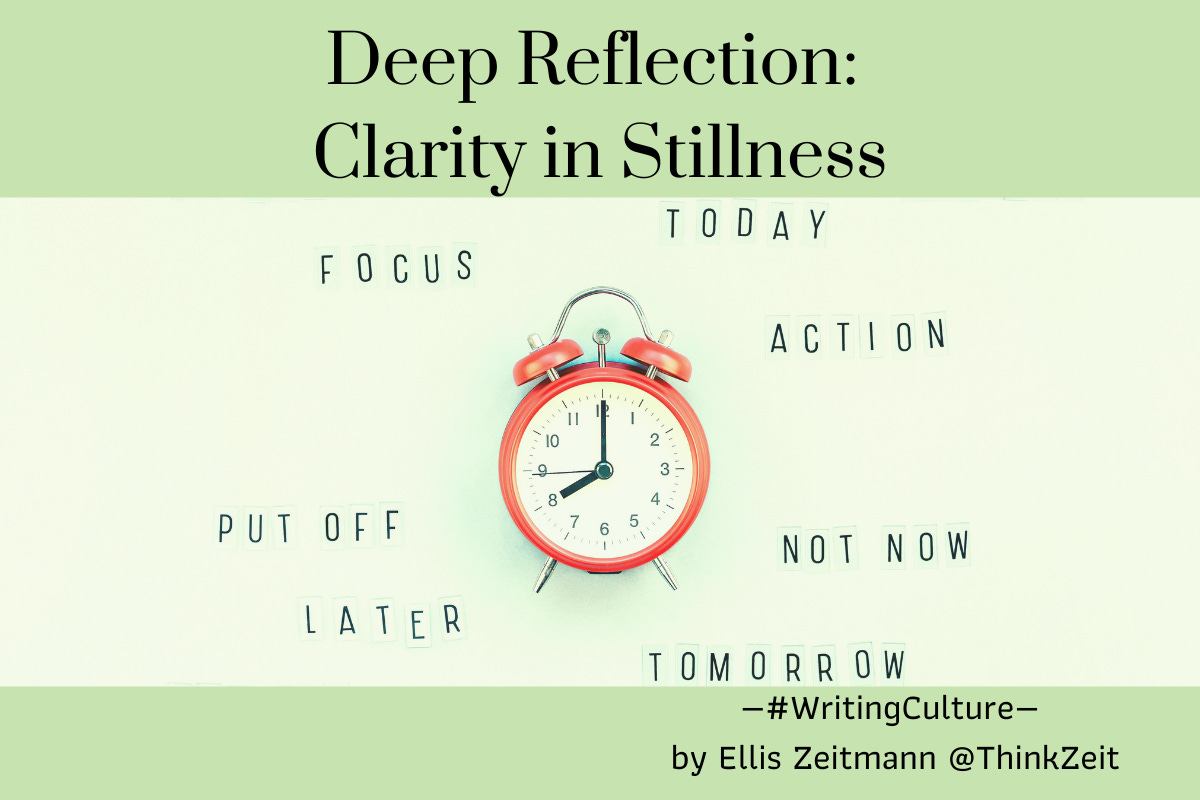Deep Reflection: The Hidden Discipline of Slow Time
How resisting urgency leads to deeper clarity, emotional precision, and the recovery of presence
To be rushed is not a condition of time but a condition of thought.
Once, we believed silence was empty. Now, we begin to understand that it carries weight.
In a culture where speed is equated with success, slowing down feels like a quiet act of disobedience. It challenges the visible metrics of modern worth: emails replied to within seconds, calendars packed from morning to night, the constant performance of being in demand.
But what if presence is not defined by how quickly we move, but by how deeply we notice?
The Paradox of Efficiency: Doing More by Doing Less
Something curious happens when we embrace what might be called Slow Time. It is not simply leisure, but a form of intention. Not a retreat into laziness, but a return to lucidity.
Slow Time does not mean inaction. It means aligning our rhythm with meaning.
Slowing down can feel unnatural at first. When everything around us moves with urgency, acceleration can feel like the only option. But urgency, when left unchecked, distorts more than it delivers. It can interrupt the mind’s ability to see clearly, to speak carefully, and to act with integrity.
Psychologically, the impulse to rush often hides a deeper discomfort: the fear of not being enough, the need to avoid inner confrontation, or the learned belief that productivity is synonymous with worth. When we rush, we rarely encounter our true selves. Instead, we meet the expectations we are trying to satisfy.
Busyness as Avoidance: A Cultural Critique
Stillness is not something we avoid because it lacks productivity. We avoid it because it reveals what lies beneath.
Modern professional culture rewards busyness, even when that busyness is more appearance than substance. Meetings that generate little movement. Deadlines that lack reflection. A theatre of urgency that has become almost unconscious.
To be busy is often seen as a sign of importance, responsibility, and engagement.
To be still, on the other hand, is too often mistaken for apathy or disengagement.
Yet Slow Time refines us. It quiets the noise and strengthens emotional clarity.
In a slower rhythm, our thoughts gain shape rather than scattering.
In a slower rhythm, we speak from a place of substance rather than surface.
In a slower rhythm, our work becomes insight rather than output.
Psychoanalytic Reflection: Time as Defense Mechanism
Within psychoanalysis, speed can be viewed as a defense. It is a mental strategy that helps us avoid seeing what we may not be ready to confront. When we move constantly, we keep certain truths at bay.
Slowness allows something else to emerge. In the pause between tasks, the unconscious has room to rise. Ideas take root. Emotions are felt. Memory becomes accessible.
In this space, we meet not only our ideas but the deeper dimensions of ourselves. This is not idle wandering; it becomes the rediscovery of interiority.
Circular Time: A Return to Ancient Rhythm
The rhythm of Slow Time is not new. It speaks to something ancient.
Long before the invention of clocks and calendars, time moved with the breath, the seasons, the sun. The human being did not manage time but lived within it.
Today, we treat time as something to divide, to conquer, to optimise. But what if we returned to the idea of time as something to dwell within, a kind of landscape rather than a resource?
When we do, we discover that what emerges is not inefficiency, but depth.
We reconnect with a clearer sense of self, a calmer voice, a more deliberate pace.
Practical Reversal: How Space Creates Effectiveness
Could it be that true effectiveness arises not from movement but from clarity?
When we slow down, we find space to:
• Write messages that don’t require multiple revisions
• Speak without excess, with greater precision and calm
• Reflect before taking action, reducing unnecessary correction
• Allow room for insight, intuition, and spontaneity
In the embrace of Slow Time, urgency no longer dictates. Alignment begins to lead.
Existential Insight: The Void We Avoid
What do we fear might surface if we simply stopped moving?
Existentially, stillness can feel like a void, yet it is not empty. It is a space where something essential begins to form.
When we allow ourselves this space, we reconnect with the self that exists outside performance and expectation. The thinker. The dreamer. The one who simply is.
And perhaps this is the deeper truth:
To slow down is not to escape life. It is to finally meet it.
What’s Next?
As we reflect on Slow Time, let us ask: What is the rush really protecting us from?
True presence does not begin with retreat. It begins with the courage to remain with what is—without schedule, without performance, without escape.
👉 Subscribe for free to Zeitmann’s Deep Reflections and hit the bell 🔔 for weekly insights into leadership, culture, memory, and meaning.
Be continued…
—#WritingCulture— by Ellis Zeitmann @ThinkZeit
#WritingCulture #CreativeWriting #DeepReflections #SlowTime #Leadership #CulturalCritique #Psychoanalysis #PhilosophyOfWork #CreativeThinking #ExistentialThinking #InnerSelf #MirrorMetaphor #PhilosophyOfAwakening #MeaningfulLiving #ReadingAndWriting



